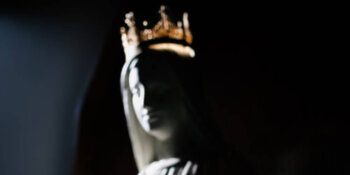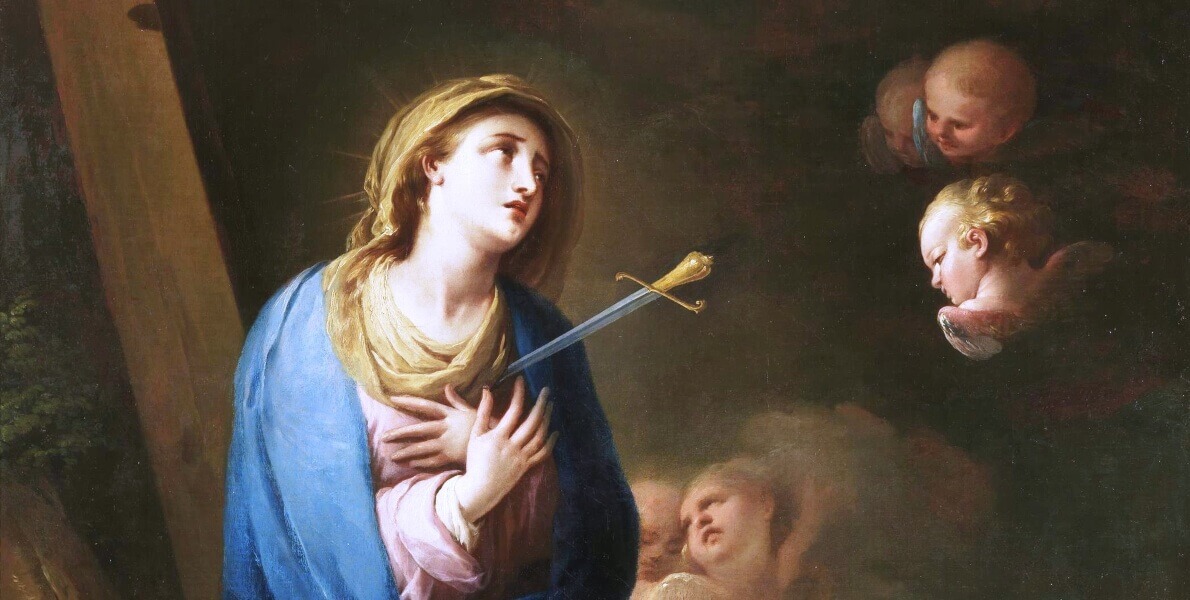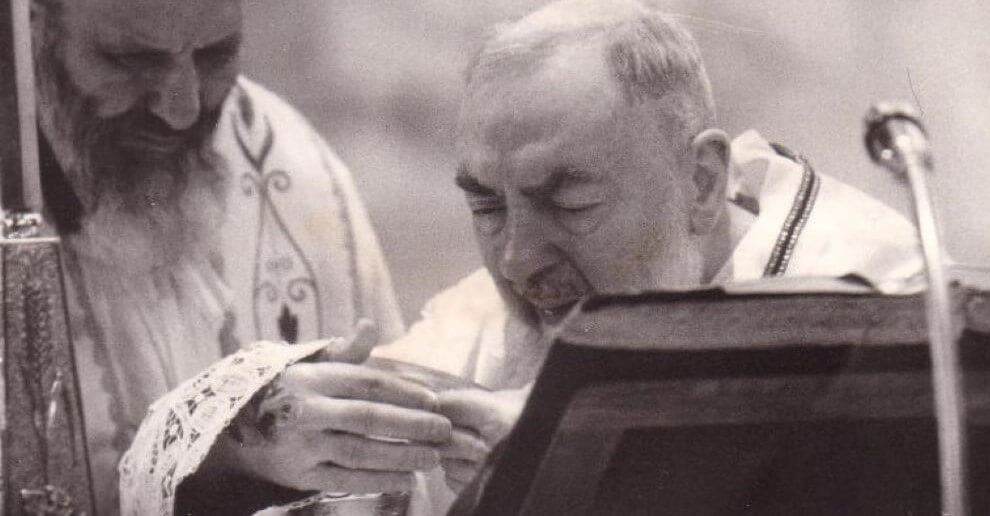Each January 1st, we ring in not only the new calendar year, but we also celebrate a holy day of obligation devoted to Mary under the title “Mother of God.”
On this feast day, the Church calls our attention to the Blessed Mother as Theotokos, which is Greek for “God-bearer.”
Stunning as these words are, they are true: Mary is—by wondrous mystery and divine condescension—“Mother of God the Son.”
How can this be? Read on to find out!
Astonishing (Yet Accurate) Marian Title
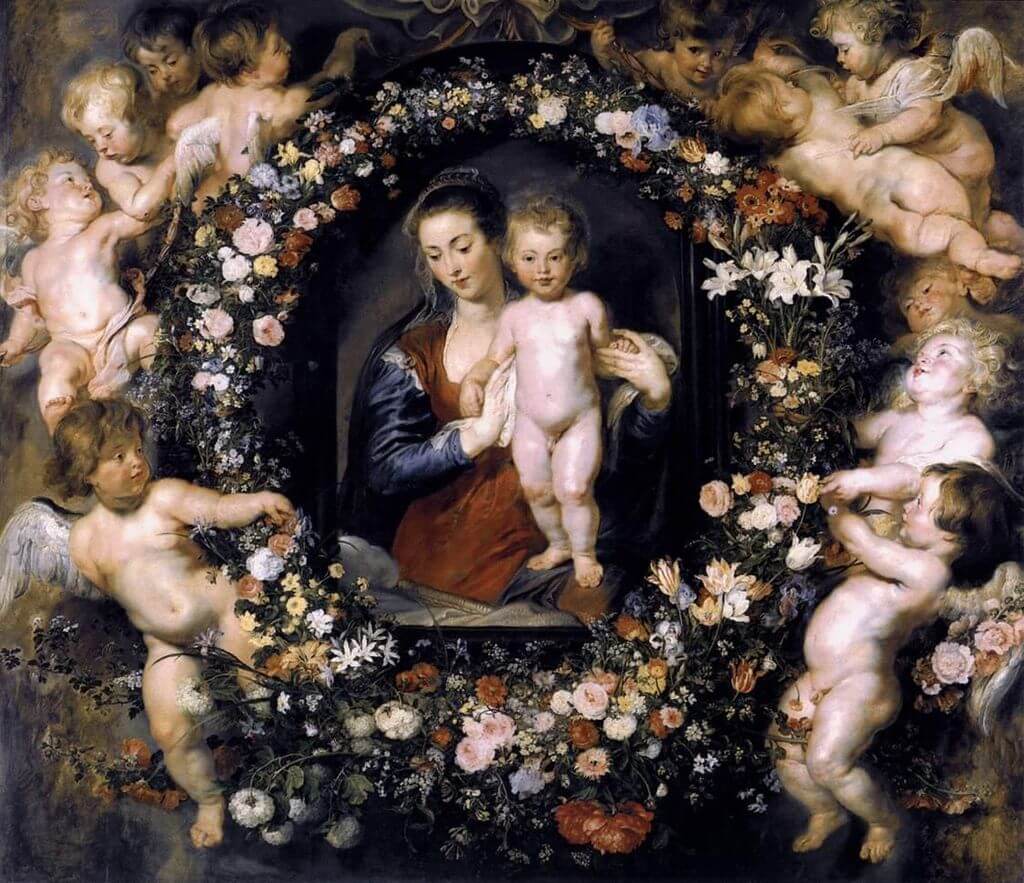
In an address given to pilgrims at his general audience on November 27, 1996, Pope St. John Paul II spoke about the origins of this special title for Mary:
Already in the third century, as can be deduced from an ancient written witness, the Christians of Egypt addressed this prayer to Mary: ‘We fly to thy patronage, O holy Mother of God: despise not our petitions in our necessities, but deliver us from all evil, O glorious and blessed Virgin’ (from the Liturgy of the Hours). The expression Theotókos appears explicitly for the first time in this ancient witness.
Does that prayer sound familiar? The one cited by John Paul II? That’s because it’s the prayer that preceded the Memorare.
With her yes to God’s will, Our Lady became both “the handmaid of the Lord” and His Mother.
In 431 A.D., the Council of Ephesus affirmed that Mary was in fact privileged with the title “Mother of God”: that she was not merely the mother of Jesus’ human nature, but mother of the whole Person of Jesus Christ. (Just as your mother is mother to you as a whole person, and not merely mother to your nature.)
As Catholics, we believe in the hypostatic union, which is the
union of the human and divine natures in the one divine person of Christ. At the Council of Chalcedon (A.D. 451) the Church declared that the two natures of Christ are joined “in one person and one hypostasis” (Denzinger 302), where hypostasis means one substance.
Catholic Culture Dictionary
So why is Mary called “Mother of God”? Because she gave birth to Jesus Christ, who is God and Man: fully God and fully man. (Note that Our Lady is not Mother to God the Father or God the Holy Spirit, but Mother to God the Son. This is not a claim, as some Protestants believe, that Mary is Mother of the Trinity or Divinity itself—God always was and always will be. Divinity itself was not “born.”
However, the Second Person of the Blessed Trinity took on a human nature, uniting it with His divine nature, when He was conceived in the womb of the Virgin Mary. He was incarnated fully God and fully Man and born of a human mother according to the astonishing will of God.
Therefore, Our Lady is accorded the privileged title “Mother of God.”
The beautiful truth of Mary as Theotokos is found in Sacred Scripture. When Elizabeth is “filled with the holy Spirit” (Lk. 1:41b) and greets Mary, she exclaims, “And how does this happen to me, that the mother of my Lord should come to me?” (Lk. 1:43, emphasis added).
As the Mother of God, Mary is also Mother of the Church, imaging for us the way in which we ourselves are to live as members of the Body of Christ.
Mary: “Mirror” of God
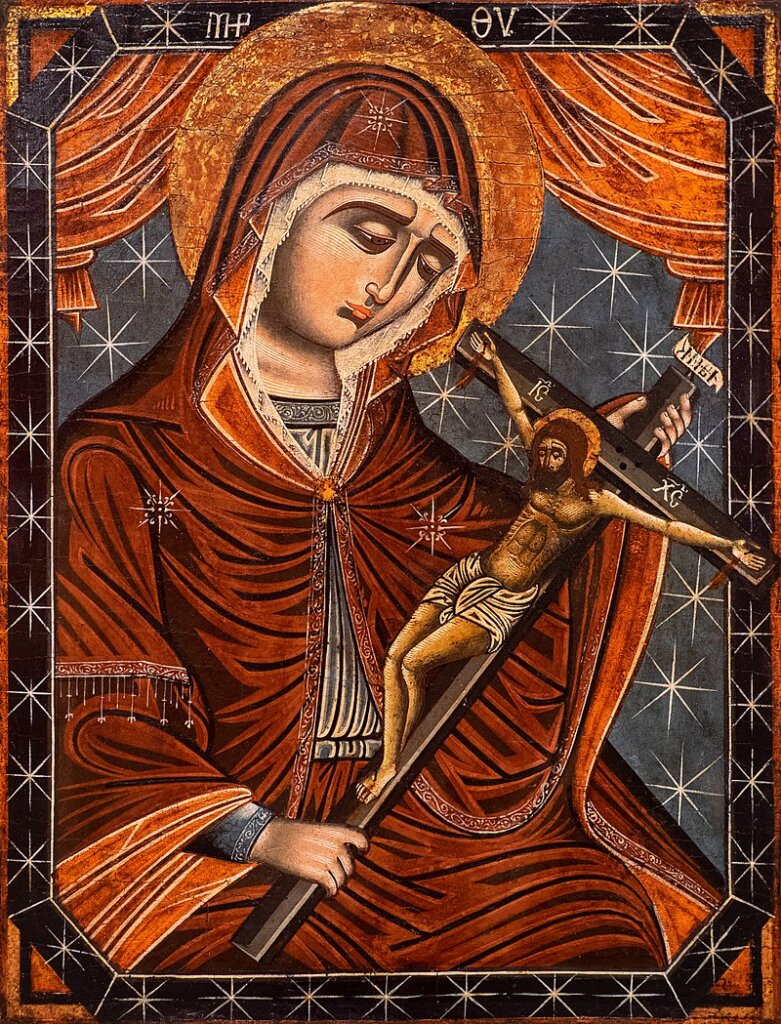
In his encyclical Redemptoris Mater, John Paul II says of Mary:
Among all believers she is like a “mirror” in which are reflected in the most profound and limpid way “the mighty works of God” (Acts 2:11).
Redemptoris Mater, Pope St. John Paul II
In some icons of the Theotokos, the Blessed Mother is portrayed with arms open—as if to offer to each of us her Son. This giving of Him is something she had to do many times throughout her life: from the moment of His birth, she accepted the visits of shepherds and kings; at the Presentation she mirrored Hannah of the Old Testament in giving her firstborn to God; when she found Him in the temple, Jesus told her and Joseph that He was already carrying out His Father’s work.
And, of course, Our Lady consented to giving Him to the world at His crucifixion, and to herself being given to all of us in Jesus’ words to John: “Behold, your mother” (Jn. 19:27).
John Paul II further remarks in Redemptoris Mater on Mary’s “heroic faith,” which accompanies her role in salvation history:
It is precisely Mary’s faith which marks the beginning of the new and eternal Covenant of God with man in Jesus Christ; this heroic faith of hers “precedes” the apostolic witness of the Church, and ever remains in the Church’s heart hidden like a special heritage of God’s revelation (27).
Like Mary, we are called to be heroic in our faith, to “bear God” to the world. We do this through living out the Gospel, engaging in the spiritual and corporal works of mercy, through prayer and fasting, and by standing up for and witnessing to our faith.
Ask the Mother of God to Pray For You
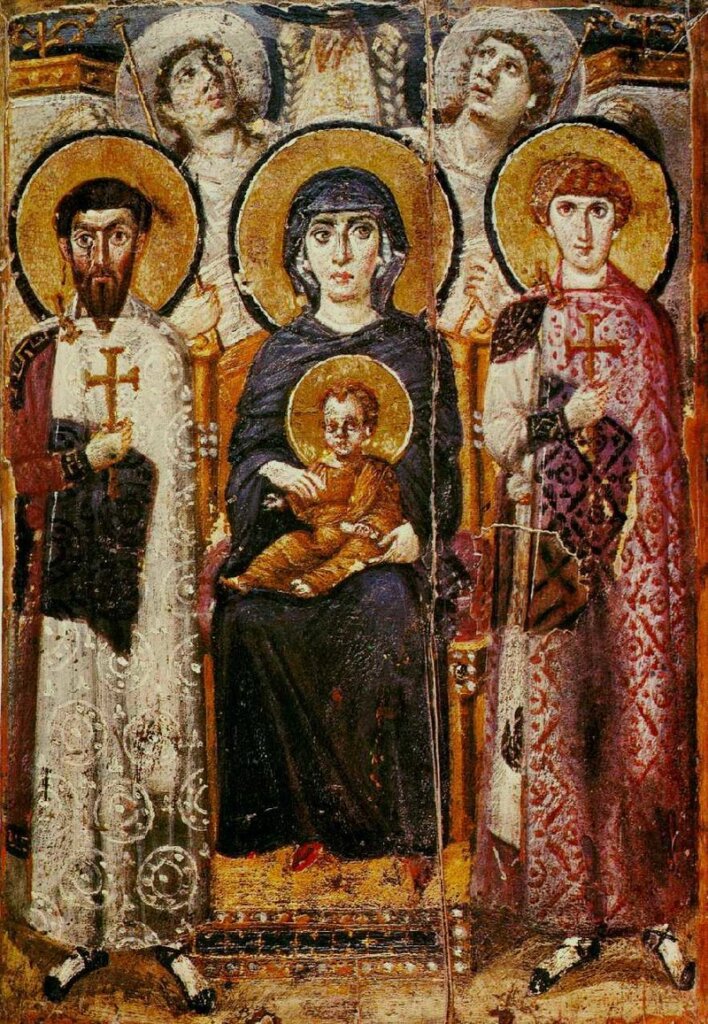
Each new year—and each new day—is an invitation for us to ask Mary to accompany us into the new year, and to guide us, as she always does, ever closer to her Son. She is our Mother and she desires our eternal salvation more lovingly than we could ever dream.
The grace of God, through Mary’s intercession, can bring Jesus to birth in our souls, and fill us with His radiance.
May we turn to her who—in humility and obedience—freely chose to carry and bear God.
Mary, Mother of God, pray for us!
What is your favorite Marian title or feast day?
Do you have questions about the title “Mother of God”?
Share your thoughts with us in the comments below! We want to hear from you!

